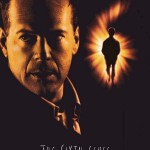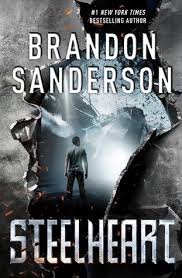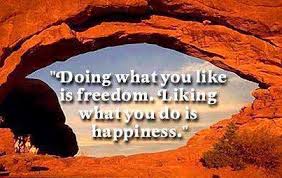 Withholding information just to mess with your readers doesn’t work. If the character would know something, the reader should know it, particularly if you write in first person or deep-dive third person.
Withholding information just to mess with your readers doesn’t work. If the character would know something, the reader should know it, particularly if you write in first person or deep-dive third person.
In general, all the major information needs to be revealed by about the three-quarter point of the story. This is the second plot point, and is when the hero learns the last major reveal that launches them into the final showdown, giving them the drive to commit everything in their final attempt to win. That doesn’t mean we can’t have twists and turns and creative solutions, but if your story hinges on a bombshell getting dropped in the final chapter that fundamentally changes everything, chances are the approach will fail.
It’s possible, but tricky. Like other rules – know it before you try to break it. Only by understanding the principles can you twist them.
For example, one movie that worked very well was Sixth Sense. The main character didn’t know he was a ghost until the end. That changed everything about the story. It was a gimmick that worked because of brilliant execution. Unfortunately, once we know the gimmick, the story loses much of its power. The Sixth Sense is fantastic to watch once, or maybe twice. I don’t think I know anyone who has watched it more than that.
ghost until the end. That changed everything about the story. It was a gimmick that worked because of brilliant execution. Unfortunately, once we know the gimmick, the story loses much of its power. The Sixth Sense is fantastic to watch once, or maybe twice. I don’t think I know anyone who has watched it more than that.
Some new writers think they need to withhold information to create suspense, to prepare for a big reveal. Suspense is important, but that’s not the way to do it. Holding back information that the reader should know through the normal flow of the story is a cheap trick and readers find it offensive. It insults their intelligence and it’s poor writing.
The author needs to find a better way.
A new writer might have characters avoid questions that they would naturally want to ask, questions that would force important truths to come out. By not asking those questions, they can withhold the information. This doesn’t work because the readers are asking themselves those questions and they’ll think either your protagonist is an idiot for not asking them, or that you as the author are insulting their intelligence.
Another mistake is for a new writer to try skipping the reveal, but allude to it. “Jane then told Bill something that shattered the foundation of everything he’d ever known. Life would never be the same.”
Well, what was that truth? If we’re in Bill’s head, we need to know it too, or you’ve broken the deep-dive you’ve established. We need consistency, or we drive readers out of the story.
So why not choose to structure their POV so we don’t do a deep-dive into the character’s head? In this way we can keep secrets, right?
Maybe. But that deep dive is a huge draw for readers. By creating distance between the reader and the character, it’s harder for readers to connect and empathize and root for the character. You risk your greatest emotional payoff that way. The approach can work for the right story, if the author has the skill to pull it off.
But we can’t tell the reader everything too soon, right? It would rob the final showdown much of its punch. You’re right, but it’s a point that has to be approached with caution. We create suspense with structure, not with gimmicks.
Some ways to deal with the issue:
1. Find a believable way to keep the information secret. For example, in The Maze Runner, the characters  suffer amnesia and one of the biggest challenges they face is to learn about their past. As those bits and pieces are regained, both the characters and the readers learn more, and the stakes grow.
suffer amnesia and one of the biggest challenges they face is to learn about their past. As those bits and pieces are regained, both the characters and the readers learn more, and the stakes grow.
2. It’s all right to have the hero put some pieces together and say, “I have a plan.” And cut the scene. This is pretty common, and if done right, can be very effective. The reader knows enough to feel connected with the ongoing story without feeling blocked or deprived, and they can still enjoy the surprise twists and cleverness of their characters. Just make sure to launch right into the plan, or the readers will expect to hear about that plan.
3. Reveal the secret to the readers, but not the hero, through other characters. If the protagonist is in the dark, but it’s important that the readers know something that’s known by other characters, this can actually help create effective tension. The readers see the problems the protagonist is having and wonder when and how they’re going to learn the secret, and how that truth will affect them.
4. Use misdirection. Mystery novels do this a lot. They’ll focus on the clues that seem to be most important, while the tiny details the characters and readers mostly ignored become key elements at the end.
5. Be creative. For example, in a fantasy series with a magic system, readers gain a sense of how the magic  system usually works. Depending on how rigidly defined the magic system is, this plays into how much it can be used to solve the ultimate problems. Suddenly revealing an entirely new aspect to magic and using it to abruptly win is an insult to readers and a trick I personally detest. However, the heroes can use their magic in creative ways that the reader probably hasn’t considered – taking the principles to the extremes. You’ve still established a foundation to build on, and it makes sense once readers consider the possibility, but you still get to enjoy the surprise/cleverness factor. Brandon Sanderson is famous for doing this. His recent YA fantasy novel, Steelheart is a great example.
system usually works. Depending on how rigidly defined the magic system is, this plays into how much it can be used to solve the ultimate problems. Suddenly revealing an entirely new aspect to magic and using it to abruptly win is an insult to readers and a trick I personally detest. However, the heroes can use their magic in creative ways that the reader probably hasn’t considered – taking the principles to the extremes. You’ve still established a foundation to build on, and it makes sense once readers consider the possibility, but you still get to enjoy the surprise/cleverness factor. Brandon Sanderson is famous for doing this. His recent YA fantasy novel, Steelheart is a great example.
6. Study your favorite authors, look at how they create suspense and weave the truths into the story.
7. Lastly, have fun with it. You want to suck your readers in, create believable tension, and seal them to your hero and the seemingly insurmountable challenges they’re facing. When your hero puts all the clues together and devises that clever solution, readers will love it and return to that story again and again.







